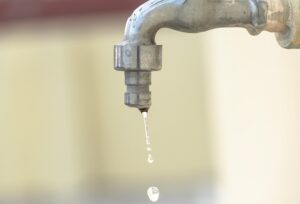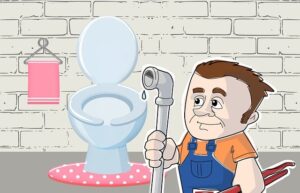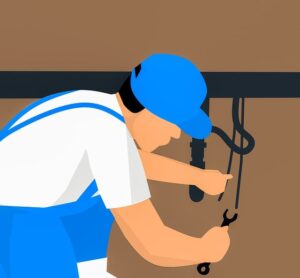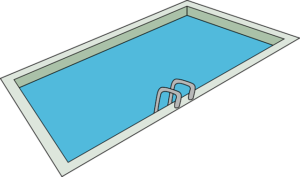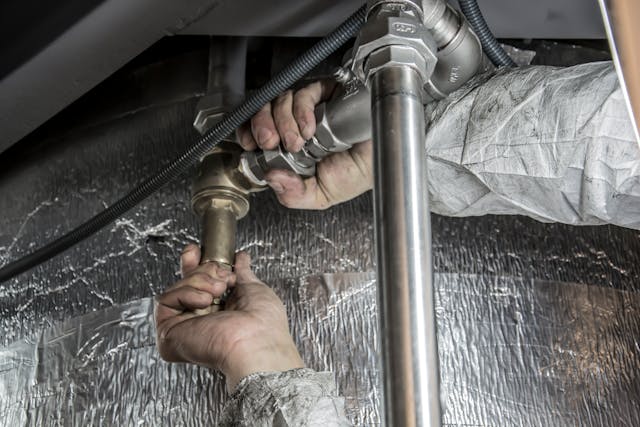
A dripping faucet might seem like a minor annoyance, but sometimes, a small plumbing issue can turn into a major headache. The big question is—when can you handle it yourself, and when should you bring in a professional? Whether it’s a slow leak, a burst pipe, or something in between, knowing when to call a local plumber can save you from costly repairs and water damage.
Small Plumbing Issues You Can Handle Yourself:
Not every plumbing issue requires professional help. Some minor problems can be tackled with basic tools and a little patience.
1. A Dripping Faucet
A slow-dripping faucet is usually caused by a worn-out washer, O-ring, or cartridge inside the tap. If you’re comfortable using a wrench and have access to replacement parts, you can often fix this yourself. Just make sure to turn off the water supply before taking anything apart.
2. Low Water Pressure in a Single Fixture
If the water pressure is low in just one sink or shower, the issue could be a clogged aerator or showerhead. Unscrew it, soak it in vinegar to dissolve mineral buildup, and reattach it. Problem solved!
3. Running Toilet
A toilet that won’t stop running usually means the flapper valve is leaking, the float is set too high, or the chain is too short. Replacing the flapper or adjusting the float is a quick and inexpensive fix.
4. Slow Drain in a Sink or Tub
Before calling a plumber, try using a plunger or a drain snake to remove any hair, soap scum, or debris causing the clog. Avoid chemical drain cleaners, as they can damage pipes over time.
These small fixes are manageable for most homeowners, but not every plumbing issue is so simple. Some problems require a local plumbing company to prevent bigger (and more expensive) damage.
When to Call a Plumber?
Some plumbing problems go beyond a basic DIY fix. If you run into any of the issues below, it’s time to call a local plumber.
1. No Water or Very Low Pressure in the Entire House
If you suddenly have no water at all, or the water pressure drops significantly throughout your home, something serious is happening. It could be a major leak, a pipe blockage, or even an issue with the main water line. A plumber can diagnose and fix the problem quickly.
2. Persistent Drain Clogs
If you keep dealing with slow or backed-up drains no matter how many times you clear them, it could be a deeper issue, like a clog in the main sewer line. Professional plumbers have specialized equipment like hydro jetting machines and sewer cameras to get to the root of the problem.
3. Water Leaks You Can’t Find
Not all leaks are visible. If you notice water stains on walls or ceilings, unexplained puddles, or a sudden spike in your water bill, you could have a hidden leak. Plumbers use leak detection tools to pinpoint the source without unnecessary damage to your walls or flooring.
4. Burst or Frozen Pipes
A burst pipe can cause extensive water damage in minutes. If you suspect a pipe has burst—or if temperatures drop and your pipes freeze—call a plumber immediately. They’ll repair or replace the damaged section and help prevent future freezing.
5. Sewer Odors in Your Home
If you smell a persistent sewage odor inside your home, that’s a sign of a serious plumbing issue. This could be due to a broken sewer line, a blocked vent pipe, or a dry drain trap. A plumber can quickly diagnose the issue before it turns into a health hazard.
6. Water Heater Problems
No hot water? Discolored or smelly water? Strange noises coming from the tank? These are signs your water heater needs attention. Whether it’s a minor repair or a full replacement, a professional plumber can get your hot water running again.
7. Gas Line Issues
Plumbers don’t just deal with water—they also handle gas lines. If you smell gas or suspect a gas leak, leave your home immediately and call both the gas company and a plumber. This is a dangerous situation that requires urgent professional help.
Why Hiring a Local Plumber Matters?
When it comes to plumbing, hiring a local professional has a few key advantages:
- Faster Response Times – A local plumber can get to your home quicker than a big-name company with a long service queue.
- Knowledge of Local Plumbing Codes – Local pros are familiar with city regulations and building codes, ensuring any work meets safety standards.
- Personalized Service – Independent plumbers often provide better customer service because they rely on word-of-mouth recommendations.
- Support for Local Businesses – Hiring a local plumber keeps money in your community and helps small businesses thrive.
How to Choose the Right Plumber?
Not all plumbers are the same, so it’s important to choose wisely. Here are a few tips to find a reliable one:
- Check Licensing and Insurance – A professional plumber should be licensed and insured to protect you from liability.
- Read Reviews and Ask for Recommendations – Check online reviews and ask friends or neighbors for referrals.
- Get an Estimate – A reputable plumber will provide a clear, written estimate before starting any work.
- Ask About Warranties – Good plumbers stand by their work and offer warranties on parts and labor.
Preventive Plumbing Maintenance: Avoid Costly Repairs
The best way to avoid plumbing emergencies is regular maintenance. Here’s how you can keep your plumbing in top shape:
- Check for Leaks – Inspect pipes under sinks and around appliances for drips or moisture.
- Flush Your Water Heater – Sediment buildup can reduce efficiency. Flushing the tank once a year helps extend its life.
- Avoid Grease in Drains – Never pour grease down the sink—it hardens inside pipes and causes blockages.
- Install Drain Screens – Catch hair and debris before they clog your pipes.
- Know Where Your Shut-Off Valve Is – In case of a major leak, shutting off the main water supply can prevent extensive damage.
Final Thoughts: Know When to Call in the Experts
While minor plumbing issues can be handled with a wrench and a little DIY spirit, bigger problems require a professional touch. Ignoring leaks, clogs, or strange odors can lead to serious damage and costly repairs. When in doubt, don’t wait—calling a local plumber at the right time can save you time, money, and stress.

